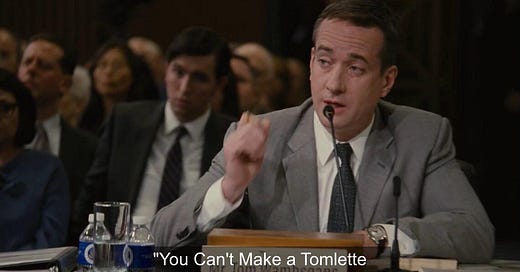#11: Should co-founders always split equity 50/50?
Most do. Here's when you shouldn't — and what to do instead.
👋 Hey Diana here! Welcome to this Operations Optimist newsletter. Each week, I tackle questions about building operations functions in startups and share my lessons from working in venture capital! In today’s newsletter, we break down how to split equity between co-founders.
Is fair split the best split?
First-time founders, especially technical ones, default to clean, equal equity splits. It’s simple. It avoids awkward conversations. It gives the illusion of fairness. And for some teams, it works just fine.
But building a startup isn’t a one-week sprint — it’s a 10-year marriage where someone eventually forgets an anniversary and someone’s resentment brews quietly over Slack. The upside? If you get it right, you’ll build something lasting, meaningful, and near impossible to replicate.
Equity isn’t just a reward for the past — it’s a bet on future contributions. So why do so many teams avoid talking about it?
Because it's hard.
Because no one wants to be that founder who says, “I deserve more.”
Because early on, when you’ve got nothing, the idea of fighting over shares of nothing feels absurd and greedy.
But we got to talk about it.
Hard truth: 65% of startups fail due to co-founder conflict, and ownership disagreements are often the spark that lights the fuse.
How to split equity fairly — and what the data actually tells us
In order to build a durable co-founder relationship, you’re going to need a way to talk about equity that factors in reality — not just optimism. Here’s what that looks like.
1: the flat split — 50/50 or alike
This is the “I’ll take half, you take half, now let’s ship it” model.
It works for:
Two co-founders, both full-time, equal-ish experience
No significant capital invested
No clear power imbalance in decision-making
Why it’s great:
Clean. No fights.
Creates immediate buy-in and shared responsibility.
Feels democratic and fast.
Why it can backfire:
Doesn’t account for differences in work, skill, or sacrifice over time.
If things go sideways, flat splits often get weaponized.
And when there’s a deadlock — who calls the shots? If you’re 50/50 on the cap table, you’re 50/50 in a disagreement too. Who will have the final say?
Use this if your founding team is symmetrical — skill, time, and financial risk are all evenly distributed. Otherwise, keep reading.
2: the value-based split — equity as a function of contributions
Instead of slicing equally, slice based on who’s bringing what to the table.
Here are the variables to weigh:
Time: Is everyone full-time from day one? Who’s going to be doing the heavy lifting over the next 12-24 months?
Funding: Who’s putting in money, not just sweat?
Experience: Is one founder 10 years ahead and guiding the ship?
IP: Did someone bring in core technology?
You can literally score each of these and assign equity ranges. It’s not perfect math, but it’s better than guesswork.
Why it works:
Incentivizes actual contribution, not just presence
Makes roles and expectations explicit early
Why founders avoid it:
It requires hard, often awkward, conversations — sometimes with people you consider your friends
You need to articulate value in ways that feel transactional
3: In reality... It depends.
According to Carta:
41% of two co-founder teams split 50/50
But teams with more experienced (i.e. second-time) founders trend more unequal with the median split being 55/45
With 3+ co-founder teams, equal splits are rare (only 19% split equally, with median splits being 47/33/17)
So what’s the takeaway?
Experienced founders don’t default to 50/50. They know that fair is not always equal.
So use this as permission: a non-50/50 split doesn’t make you greedy — it makes you intentional.
That’s it for today.
Here’s what we covered:
A 50/50 split can work — but only under near-ideal conditions
Value-based splits are harder up front, but protect you down the line
Real startup data shows: most equal splits are actually not fully equal
Equity is your first big decision as a founding team. Don’t wing it, don’t put it off. Have the conversation now — before your cap table starts pulling you down.
Tell me what you thought of today's email.
Hit reply and let me know why.
PS. If you're enjoying Operations Optimist, consider referring this edition to a friend, making good equity split decisions is what makes or breaks a lot of early-stage companies.




